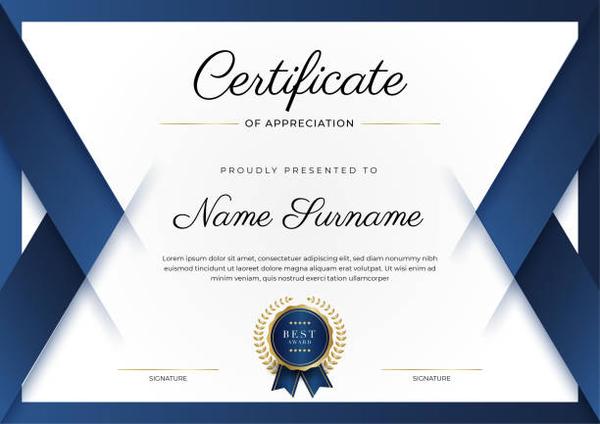Authenticating Degrees makes it easy to check if applicants have truthfully stated their education on their resume. This is especially important, as fake credentials are increasingly being circulated by diploma mills.
This type of fraud not only makes it harder for reputable employers to find qualified candidates, but also devalues the hard work that real degrees symbolize.
Degree Verification Process
The degree verification process is one of the most important tools available for preventing academic fraud. Verifying degrees helps employers to ensure that applicants have the qualifications needed for a position, protects the integrity of legitimate universities and reduces the risk of diploma mills.
A simple, easy-to-use online or paper form can help streamline the degree verification process. Using a form can save valuable time and effort for both the institution and candidate.
Online forms can also provide clear instructions, multilingual options and other accessibility features for students with disabilities. This allows them to provide the information needed for a complete and accurate degree verification without any confusion or errors.
Many students and graduates must authenticate their diplomas for international applications. These documents are often subject to a lengthy authentication process by AERC. Some students may not require authentication, but it is important to check with the company or institution requesting the document. It is also a good idea to have a backup plan in case the document is not authenticated. This can include an alternative degree certificate with a notary stamp or seal.
Credential Fraud Prevention
Credential fraud is a billion dollar industry that affects the reputation of institutions like universities and employers. It can damage an organization’s ability to recruit and hire qualified people and can create liability issues. It also impacts the trust and credibility of individuals in their professions.
It is a significant global issue because it is so easy to obtain fraudulent credentials, including fake degrees. Many of these degree scams are fueled by high-pressure sales tactics and the promise of accreditation from phony universities. The best way to prevent it is to conduct thorough background checks and educate hiring managers and other personnel about the types of degrees that are commonly faked.
Dock Certs and the Dock Wallet verify degrees instantly with blockchain technology, making it easier to confirm that someone did attend an institution. This can save organizations time and money by reducing the need for phone calls to schools, which can often have long turnaround times. It also helps to reduce the risk of credential fraud and keeps companies safe and productive by ensuring that candidates have the qualifications they claim to have.
Verify Educational Credentials
Education verification is an important step in the hiring process to ensure that candidates’ claimed educational qualifications are legitimate. Unfortunately, misrepresentations regarding academic credentials are not uncommon, and can undermine the integrity of both the hiring process and a company’s reputation. To prevent fraudulent claims, it is essential to utilize education verification and keep detailed records of the process.
Typically, this involves reaching out to the claimed educational institution’s registrar’s office and requesting information about the candidate’s degree, attendance record, and GPA. Verification can take time, depending on the responsiveness of the institution and the complexity of a candidate’s educational history. Some degrees may also need to be authenticated or legalized if they are to be used in another country. The embassy or consulate in the country to which the degree will be presented will review the document and confirm that it meets their requirements. Often, embassies or consulates will stamp or place a sticker directly on the document to mark it as authenticated and legalized. Our notary https://lambanggiagiare.net/ services can help with this process by drafting a notarial certificate that is attached to the original degree.
Diploma Mills
A diploma mill is a bogus college or university that sells degrees to students who haven’t done the work. While some blatantly market themselves as illegitimate universities, others are more subtle and harder to spot. They may require a small amount of coursework but not enough to qualify as legitimate academic work. They also offer degrees for much less time than would be required by a legitimate institution. They often operate online and don’t have a physical address.
These diploma mills are a major problem because they devalue legitimate education and qualifications by treating degrees as a commodity to be sold. They also pose a threat to society, as they allow individuals to get jobs without having the qualifications they need for the job. This is a key reason why professional background screeners should use their expertise to spot these fake colleges and universities. They can cross-reference information with lists of known diploma mills to identify potential problems. Then, they can report the results to their client. The client can then decide what steps to take.
Background Check for Degrees
In many industries, having a degree is essential for employment. Many positions require a bachelor’s or higher level of education, and employers want to make sure candidates are truthful about their education on their resume. Unfortunately, it is not uncommon for applicants to inflate their education credentials on resumes. Some even resort to diploma mills to purchase fake degrees. Fortunately, background checks can help verify education and prevent fraud.
Educational verification, also known as a college transcript check or education background check, searches high schools, vocational schools, colleges, and universities to corroborate the candidate’s claimed education history. This includes the dates attended, programs of study, and graduation status. The verification process can be lengthy because it involves contacting the registrar’s office of each school and waiting weeks or months for official documents and confirmation from these institutions.
Sometimes it can be difficult to locate records because candidates may have changed their name or have graduated in a different country than where they live now. However, a good background screening service will have in-house verifiers to reduce the turnaround time and increase accuracy of results.




